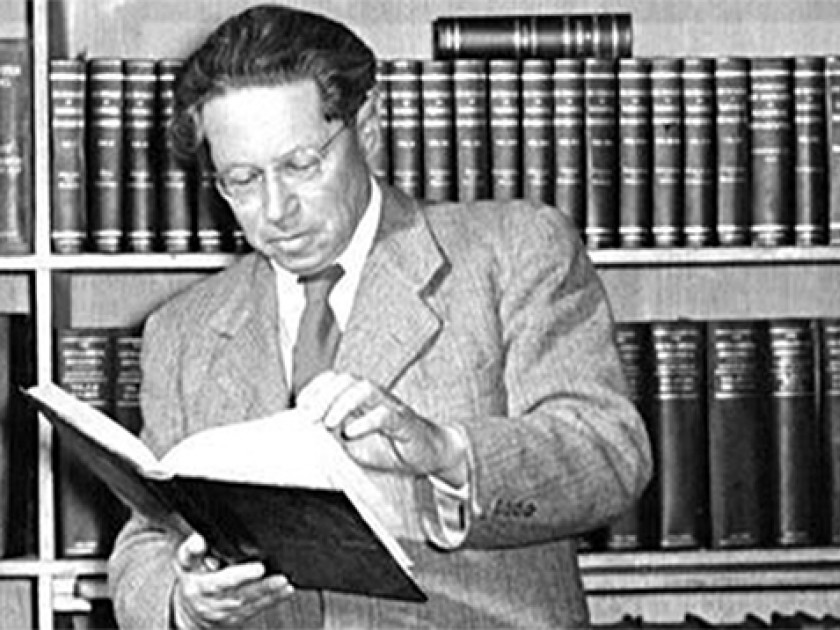
Earlier this week, Alan Judd about the personal encounters with British Jewry that led to his latest novel, The Kaiser’s Last Kiss. Alan is guest blogging for the Jewish Book Council all week as part of the Visiting Scribe series here on The ProsenPeople.
The German-Jewish novelist Lion Feuchtwanger (1884 – 1958) was brought to my attention by a friend and colleague in the Foreign Office, himself of Jewish extraction. He gave me a copy of Feuchtwanger’s best known novel, Jew Süss, telling me it was about power and Jewishness and that it could prove a manual for anyone with ambitions to rise in any bureaucracy. I think he was right, although in my own career I tended to float up with the tide rather than achieve distinction through ability and manipulation.
It is a great novel, exotic, sensual and vivid, set in an eighteenth-century German statelet and inspired by the history of Joseph Süss Oppenheimer. It begins:
A network of roads, like veins, was strung over the land, interlacing, branching, dwindling to nothing.
Not a sensational first line, but one that tells you you’re embarking on a story told in a leisurely manner, detailed and visual, leading somewhere. You know you’re in good hands. First published in Germany in 1925, Jew Süss was translated by Willa and Edwin Muir for publication in English in 1926. Helped by an enthusiastic review from Arnold Bennett (“It entertains, it enthrals, and simultaneously it teaches; it enlarges the field of knowledge,”)the book rapidly went through five printings and, by 1931, translation into 17 different languages.
I possess a signed first edition, rough-cut, number 26 of 275 numbered copies, which I picked up for £2. You can still do that with Feuchtwanger because, despite the fact that he has rarely if ever been completely out of print, he is no longer widely known.
I then began collecting and reading others of his works, usually for next-to-nothing in second-hand shops. My favourite after Jew Süss is his Josephus trilogy, a convincing evocation of that equivocal Jewish-Roman historian and general. Again, Feuchtwanger demonstrates his profound insight into the mechanisms and costs of the quest for power. I found an early 1950s book on contemporary German authors in which he was given almost as much space as Thomas Mann.
Next I found a printed script of the 19,34 film of Jew Süss, made in Britain by Lothar Mendes and starring Conrad Veidt. I learned that the Nazis also filmed the book in 1940, predictably as antisemitic propaganda. I’ve never seen either, but it is surely a tribute to the artistry of the book and its author that, with some distortions, it permits of two conflicting interpretations. So why isn’t Feuchtwanger better known?
Feuchtwanger left Germany for a tour of the United States in 1933, already an early and influential opponent of the Nazis and, possibly as a result of his First World War military experience, a proponent of the Left. While he was abroad his citizenship was revoked and he was designated ‘Enemy of the State Number One’. He never returned to Germany, living in the south of France until imprisoned early in the Second World War. He escaped — just — and was given asylum in the United States, settling with other escaping writers in California.
Feuchtwanger fell under suspicion in the McCarthy era, unsurprisingly given the communist sympathies evident in his book, Moscow 1937, an account of his state-sponsored travels in Russia, in which he praises Stalin and defends the show-trials. Although in the foreword he appears uneasily defensive, his text unhappily demonstrates that there are none so blind as those who will not see. He even excused Soviet antisemitism by proclaiming that in Jewish villages “the surprising absence of people between the ages of fifteen and thirty — of young women as well as men — lies in the fact that the whole of Jewish youth goes to the towns to study.”
Could this have tarnished his reputation and played a part in its posthumous disappearance? Maybe. It would be interesting to know whether Feuchtwanger reacted publicly to Kruschev’s 1950s revelations of Stalinist atrocities. Whatever accounts for it, over half a century later Feuchtwanger remains an unjustly neglected writer whose insights into the nature of Jewishness and anti-Jewishness, formed in the crucible of the twentieth century, are still unhappily relevant.
Alan Judd is the author of eleven novels and two biographies. He previously served as a soldier in the British army and as a diplomat in the Foreign Office. Judd is a Fellow of the Royal Society of Literature and has won numerous awards including the Guardian Fiction Prize and the Heinemann Award. He currently writes for The Spectator and The Daily Telegraph. He lives in Sussex with his family.